WordPress vs Squarespace: Which One To Choose?
Here is a detailed comparison of Wordpress vs Squarespace, their services and packages and helps you to determine the finest website builder for you.
Our HubSpot Products
OUR COMPANY
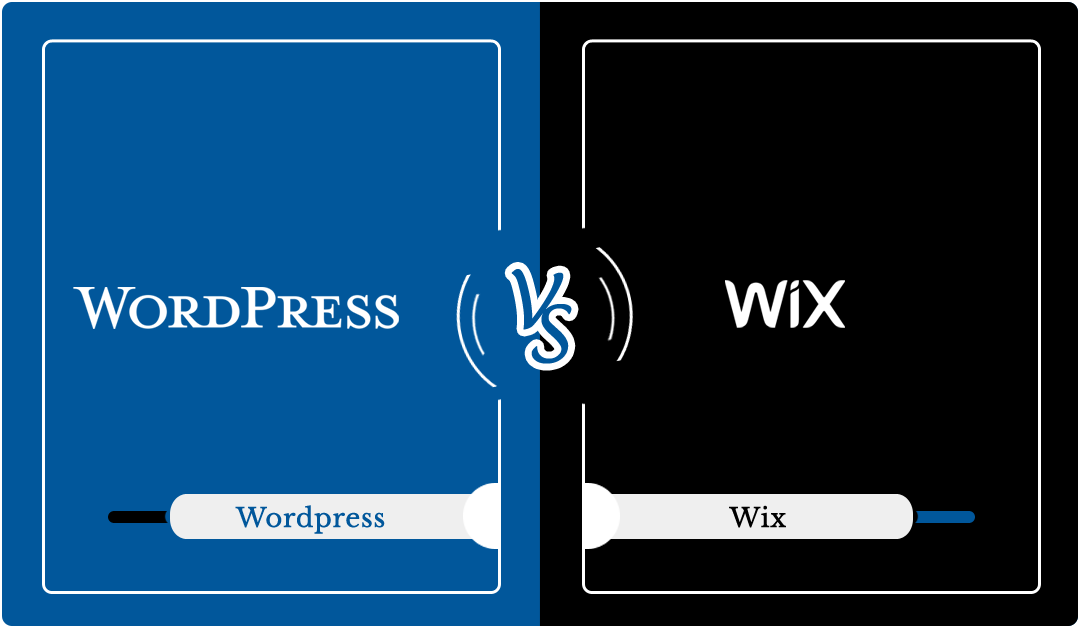
The Ultimate Comparison.
It goes without saying that starting an online business with an e-store has become a popular alternative.
WordPress's status as the finest platform for creating websites seemed certain only a few years ago. However, the environment has changed in recent years and there are a lot of new players on the field. Wix is one among them. Making a comparison between Wix and WordPress is difficult especially if you're new to website development.
This article will focus on the comparison of Wix vs Wordpress based on pricing, support, simplicity of use, security, themes, plugins and other factors that will all be examined in depth.
If your present shop is no longer meeting your company needs, transfer to Wix or WordPress might be useful in a number of ways. You may migrate from any platform to Wix or WordPress, as well as from WordPress to Wix and vice versa.
Is it really necessary for me to learn WordPress when I can develop a website using Wix in less time? When deciding to construct a website, this is a question that many beginners consider.
The discussion between Wix and WordPress is growing increasingly prevalent these days. WordPress is the most used site builder today, powering more than 40% of all websites. However, in the present era it is not the only choice.
Many individuals are turning to easy drag-and-drop web builders like Wix to reduce the learning curve associated with constructing a website.
Is Wix going to be able to suit your website demands that WordPress may not be able to? In this post, we'll compare WordPress and Wix to help you determine which is the best option for you.
Wix is a website builder, whereas WordPress is a content management system. Both systems allow you to construct websites and they both have the same goal: to make it easy for users to develop beautiful and functional websites.
Wix is an easy-to-use site builder with a variety of design options making it great for portfolio-style websites. Building a huge site isn't a good idea because the editor slows down when there are too many pages. WordPress allows you to develop considerably larger websites but it does need a higher level of technical expertise.
The most significant distinction between Wix and WordPress is their technical approach: while all Wix products include hosting and tech assistance, WordPress is an open-source platform that forces you to do this yourself. You must locate and install a web host on your own webspace. If there are any technical difficulties, it is also your responsibility.
In the spirit of healthy competition, we'll throw Wix and WordPress against each other in different categories to see how they compare. Only one will survive in the end, so let's get this war started!
Wix is a platform that allows you to create and manage your own website without knowing how to code. It's a software as a service tool, which means you don't own it and instead pay a monthly subscription to utilise it.
It attempts to provide you with the majority of the tools you'll need to create and maintain your website 'out of the box,' such as a domain name, hosting, templates, a content management system (CMS), ecommerce capabilities and customer support.
Wix is cloud-based, which means you don't have to install anything and don't have to worry about hosting. You can develop and maintain a Wix website from anywhere as long as you have access to a web browser and the internet.

The 'Wix Editor' allows you to choose a template, construct a framework for your site and then populate it with content. It is the most common approach for most people to get started with Wix.
You may also utilise the 'Wix ADI' mode (Artificial Design Intelligence) to design a fully customisable website for you, along with graphics, video and text.
This is accomplished by asking you a few questions about your goals and then filling your website with publicly accessible information about you or your company (sourced automatically from the web). This can be a bit hit-or-miss, but changing the copy once Wix ADI develops the initial draft of your website is extremely simple.
There are various 'developer' versions of Wix accessible in addition to the Wix Editor and Wix ADI editions.
For starters, there's an option called 'Velo by Wix', which gives you access to a lot of the Wix code.
'Editor X', a new Wix version intended for agencies and developers, is also available. This allows users to construct genuinely responsive websites, which is presently not possible with Wix's standard edition.
There are two versions of WordPress to check about:
Hosted WordPress, similar to Wix, is a software as a service (SaaS) solution for creating and maintaining websites.

Although it began as a blogging platform, it has evolved into a full-fledged website builder. You pay a monthly charge (varying from $4 to $45) to use it, and you have access to a variety of services that help you build a website.
As a result, hosted WordPress is similar to Wix in the following ways:
Self-hosted WordPress is a website creation and administration tool that you may download from wordpress.org and install on your own web server. This, of course, implies that you will need to purchase hosting in order for your website to have a home.
Now that WordPress is open-source, the code that powers it is publicly available and easily modifiable.
In reality, this implies that sites created using self-hosted WordPress may be highly modified. It's a very adaptable tool that, in the hands of the appropriate developer — or with the correct plugins installed — can be personalised to match the needs of almost any website design project.
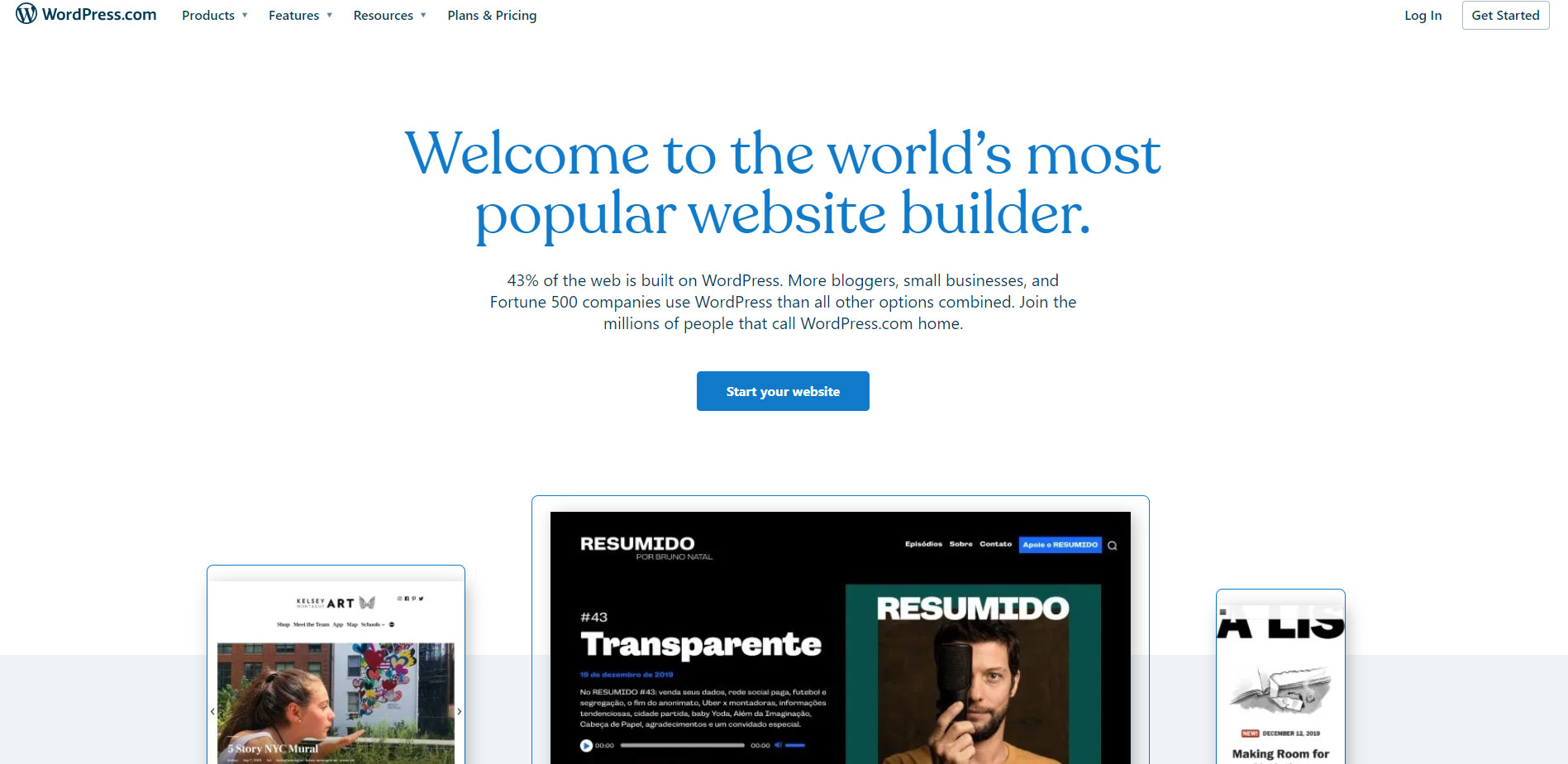
Despite the platform's versatility and power, it's absolutely feasible to establish and manage a website using it without any coding or design knowledge – it's pretty simple to select and install a WordPress theme made by a professional designer, install it and just add some content to it.
Thousands of these may be found in the official WordPress theme directory.
And Gutenberg, WordPress' new drag-and-drop interface for putting out page and post content makes content administration easier than ever for newbie webmasters.
Although you can establish and edit a self-hosted Wordpress site without any programming knowledge, you will often spend more time 'connecting the dots' than if you used Hosted Wordpress (or indeed Wix).
A WordPress build typically entails the following tasks:
All of these might lead to a more difficult learning curve than Wix.
To use Wix or WordPress, you don't require any coding knowledge. Let's have a look at how the two compare in terms of simplicity of use when it comes to building a website.
WordPress has a higher learning curve than other platforms. It contains a built-in visual editor, and you can use the built-in theme customizer to customise themes in a WYSIWYG environment. WordPress makes it simple to install a theme.
Despite the fact that WordPress lacks a built-in page builder, you can use great drag-and-drop page builders like Elementor and Gutenberg. This makes the process of creating a web page a lot easier.
There are other plugins available, such as Blog Post Layouts, that allow you to customise the layout of your posts to your desire.

In contrast to Wix, you must preview content or make the page live to see how it looks. But this isn't a big deal because you can preview the content with only one click.
Additionally, you must purchase both the site hosting plan and the domain name individually with WordPress. You must choose between less expensive shared hosting and more expensive dedicated hosting, depending on your needs.
Wix, on the other hand, offers both of these services as part of their packages.
WordPress users have a variety of hosting alternatives to select from when it comes to services. You may even start with a free WordPress hosting plan before upgrading to a premium one.
Wix, on the other hand, makes creating a basic website a breeze. All you have to do is go to their website and register. When you sign in, Wix will ask you what type of website you want to make and present you with many possibilities.
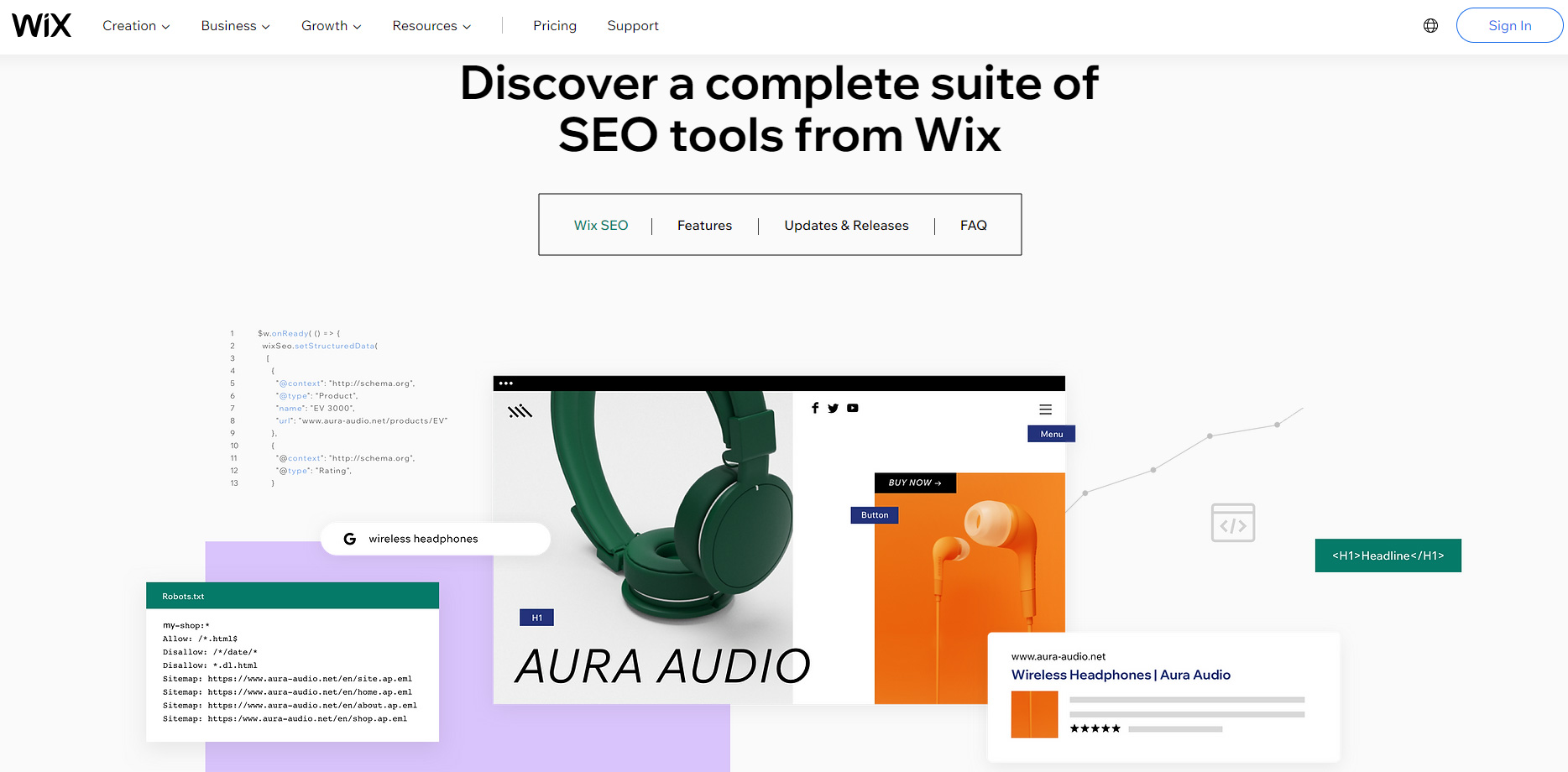
Then you may choose to have Wix ask you some questions and create a website for you instantly (depending on the category you select). Alternatively, you may create your own Wix template.
Wix allows you to simply add text, photographs, buttons and other items to your website by dragging and dropping them anywhere on the page. These elements can be resized easily in a user-friendly environment.
Wix is the obvious winner in terms of simplicity of use when it comes to creating a website. While WordPress is more powerful and versatile, it takes time to learn how to build a website.
To build your website, you must become familiar with various aspects. Additionally, you must devote effort to choose the best hosting provider for your requirements and budget.
When visitors search for relevant keywords or phrases, Search Engine Optimization ensures that your website or webpage ranks high in search engines like Google. Plugins for both Wix and WordPress are available to help your site rank higher in search engine results.
You may select from a variety of SEO applications while using Wix. The following are a few of them:

Site Booster - With the unlimited or more expensive premium subscription, you can obtain the SiteBooster app for free. Otherwise, you'll have to pay $3.44 every month.
Site booster helps you publish your business information in all of the relevant online places and you can use the app to manage and update your information. It also contains SEO capabilities like performance tracking and keyword targeting.
Rabbit SEO - Rabbit SEO app is free to trial, but the full edition costs $7.49. It's a whole ranking solution that shows you how to make your landing pages more search engine friendly. They provide you regular updates on your site's rankings and also assist you in tracking your rivals.
There are several plugins available for WordPress that can assist with your site's SEO skills. The following are two of the most popular:
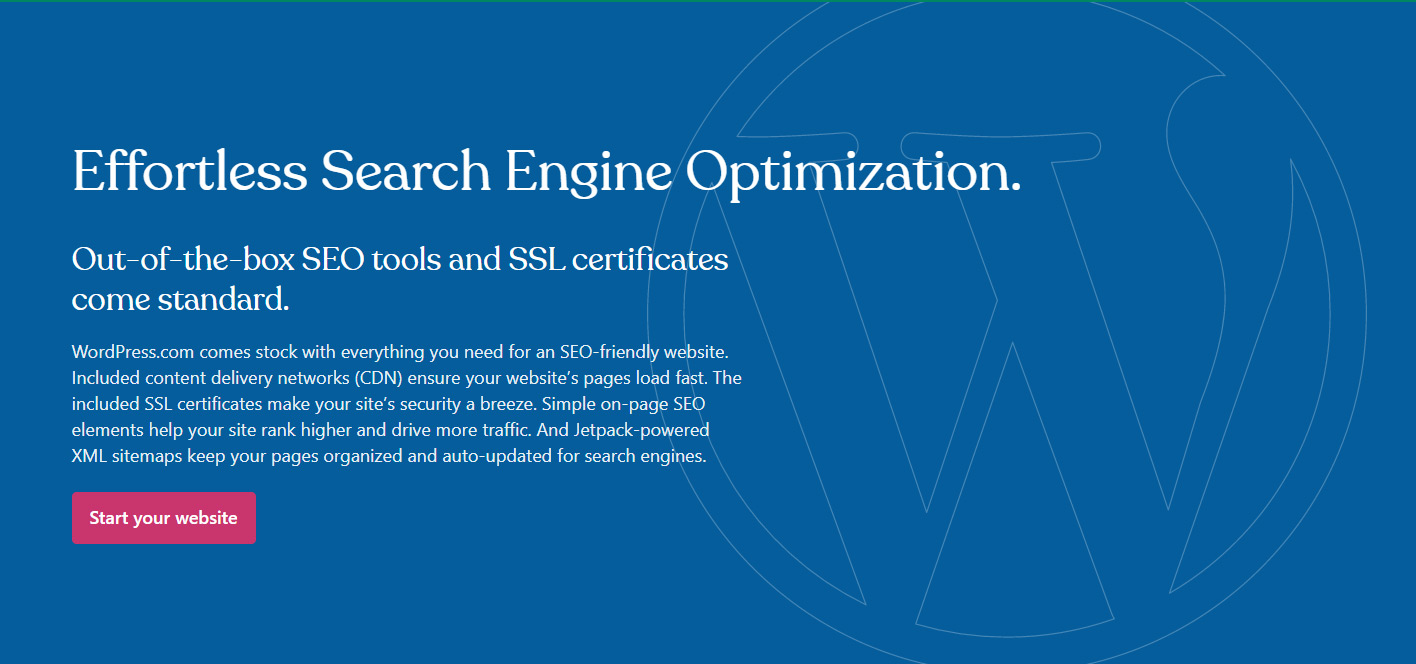
Yoast SEO- Yoast SEO is the most popular SEO WordPress plugin, with over 5 million websites using it. You may test it for free, but the free version has some limitations. The premium edition will set you back $69 for one website and includes a slew of useful features. It makes recommendations on where to link your web pages internally and how to optimise numerous keywords, among other things.
RankMath - Another popular WordPress SEO plugin is Rank Math. It is completely free and includes options like customising your site's name, meta description and URL to match your keyword. It also aids in the free optimization of your site for multiple keywords. Rank Math is a superb on-page SEO tool.
In terms of search engine optimization, leading bloggers advise using WordPress. One of the reasons is that it has built-in tools for Google ranking.
Wix is a good solution if you only have simple SEO requirements. WordPress, on the other hand, is a great alternative if you're thinking long term and may decide to engage an SEO Analyst or agency to help with your search engine optimization.
The design and layout of your website are critical for its success. Every website owner needs a web design that is not only attractive but also user-friendly and distinguishes their business.
Wix has over 900 pre-made templates to choose from. Wix designs are all fully responsive and HTML5-based. You may further customise your site's style, adjust the layout and rearrange elements using the built-in tools.
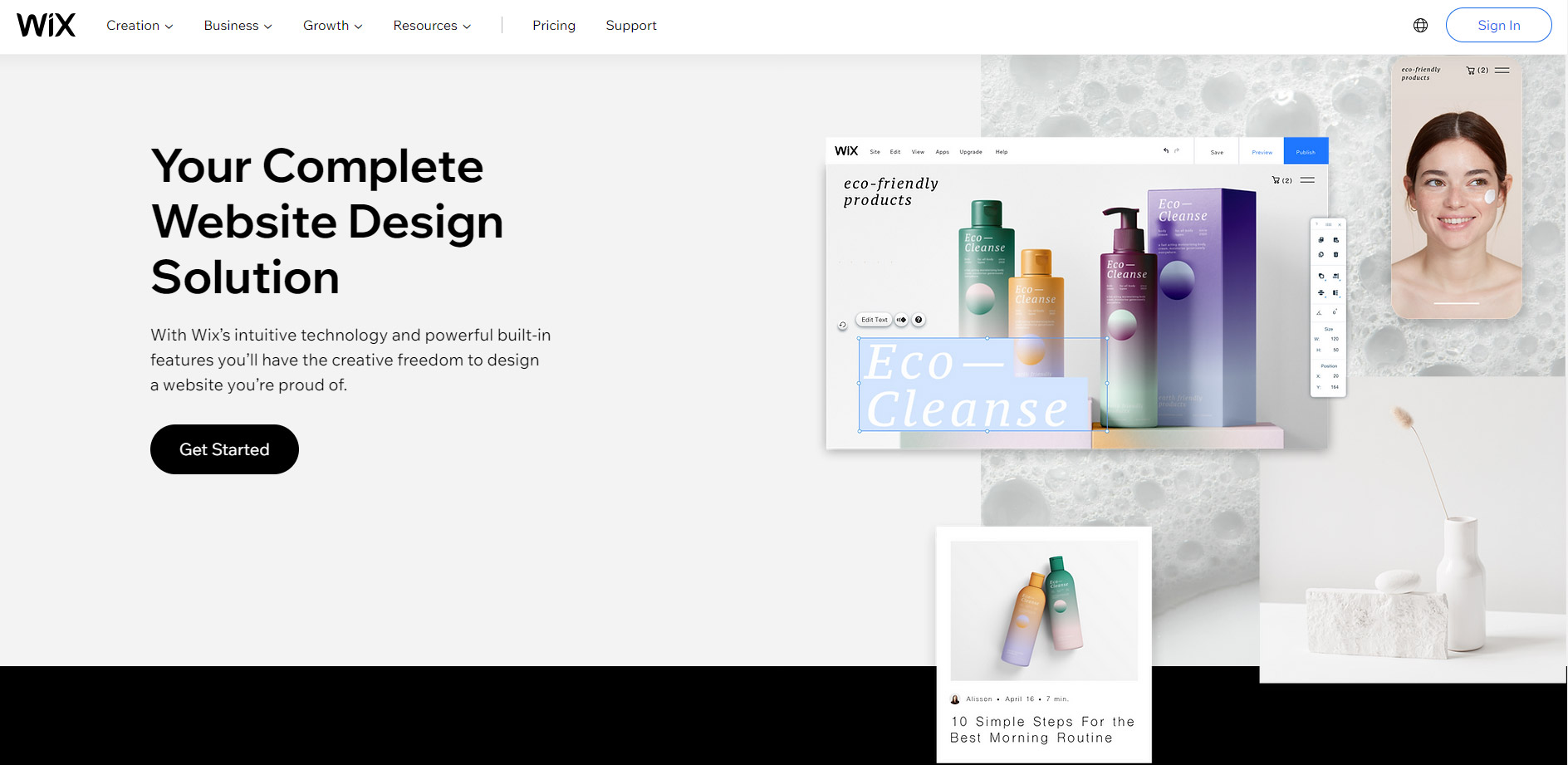
Every type of website may benefit from a design. Business, eCommerce, hobbies, arts & crafts, personal and more categories are among the templates available.
One significant downside is that after you've chosen a template, you can't go back and modify it. You can change and alter it as much as you like using the built-in tools, but you won't be able to switch to another template.
WordPress has dozens of free and paid themes to choose from. Free themes come with restricted support, but they are also subjected to a thorough evaluation. Paid themes usually come with more functionality and premium support options.
WordPress themes are available for everything from modest personal websites to full-fledged e-commerce stores. The majority of themes provide their own set of customisation options. To further style or tweak your WordPress themes, you may utilise one of the numerous styling plugins available.

Users can access the WordPess.org directory to obtain free themes. Several WordPress theme and theme retailers, such as Astra, StudioPress, Themify, CSSIgniter, and others provide premium themes.
You may also hire a developer or learn how to make an entirely unique theme for your business.
SeedProd is a landing page builder plugin that lets you easily install a website, a sales page, a product page or even a coming soon page independent of whatever theme you're using.
What's more, you may change your WordPress theme at any moment and use a new one. As a result, your website design may develop and expand in tandem with your company.
In comparison to Wix, WordPress offers a significantly greater selection of themes and design styles. WordPress users may also change themes as much as they want and personalise them as much as they like.
Plugins and Apps are the next section in our Wix vs. WordPress comparison. They are third-party extensions that you may use to enhance and expand the functionality of your website. Wix refers to them as applications, but WordPress refers to them as plugins.
To begin with, The Wix App Market provides 250+ sophisticated web applications that allow you to combine your Wix site with major marketing or financial tools, sell online and more. The majority of applications are either free or offer a limited edition. Others have monthly payments and costs that vary. Despite the small number of applications available, they cover the most often requested functionality.
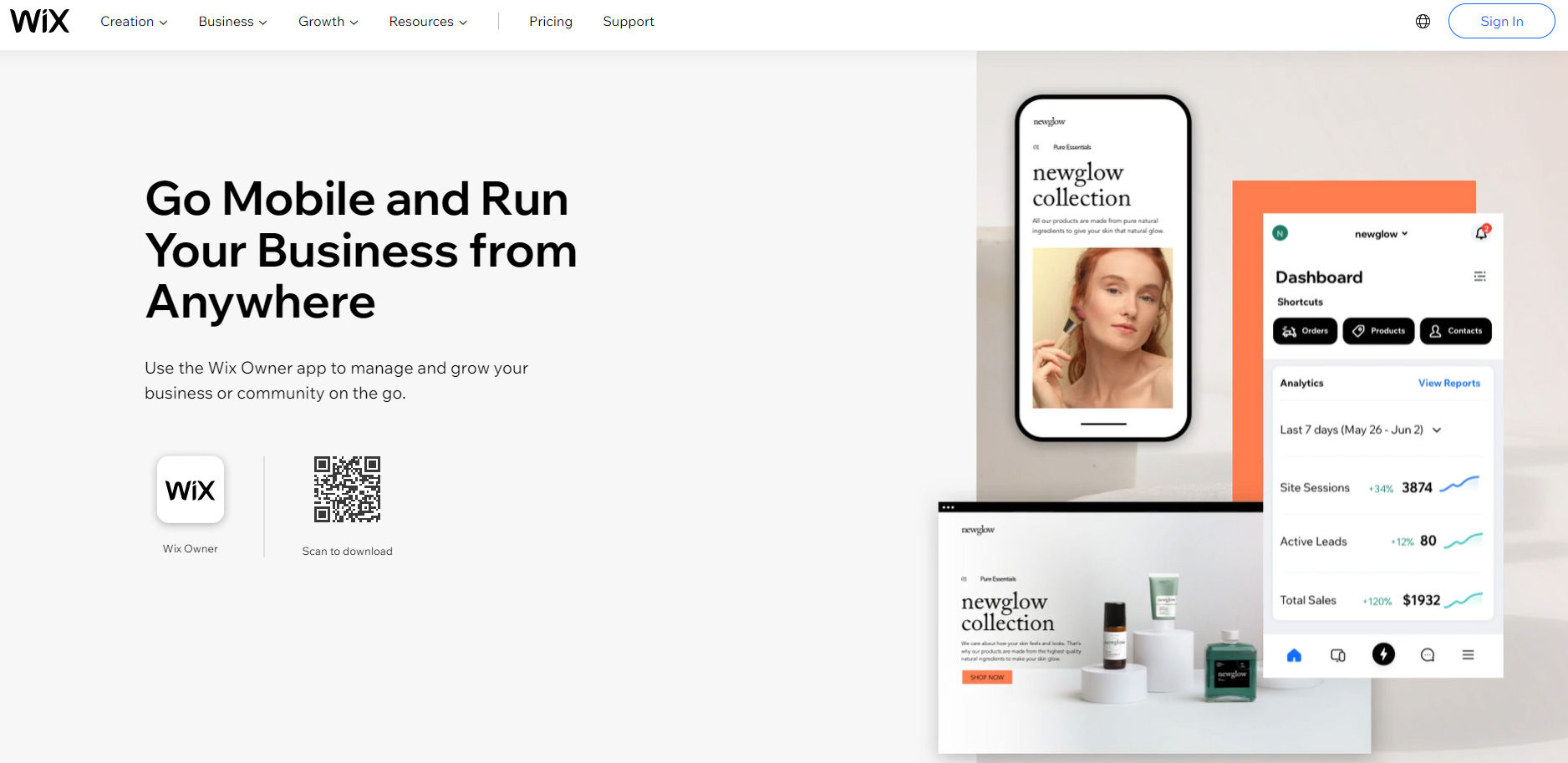
Notably, Wix has tested all applications for compatibility so you can be certain that they will work together seamlessly.
However, Wix does not have a viable answer for everything. Take a peek at WebsiteToolTester, a multilingual website that supports seven languages. While Wix has a multilingual webpage capability, it is not SEO-friendly and is difficult to use.
One benefit of WordPress is that the open-source community has produced a large number of applications and plugins for this platform. WordPress now has over 59,000 plugins, far more than any other website builder.
There's a plugin for everything: creating a contact form, installing Google Analytics, creating a membership website and selling online things. To put it another way, if you can think of a feature, chances are there's a WordPress plugin that can help you create the website of your dreams.
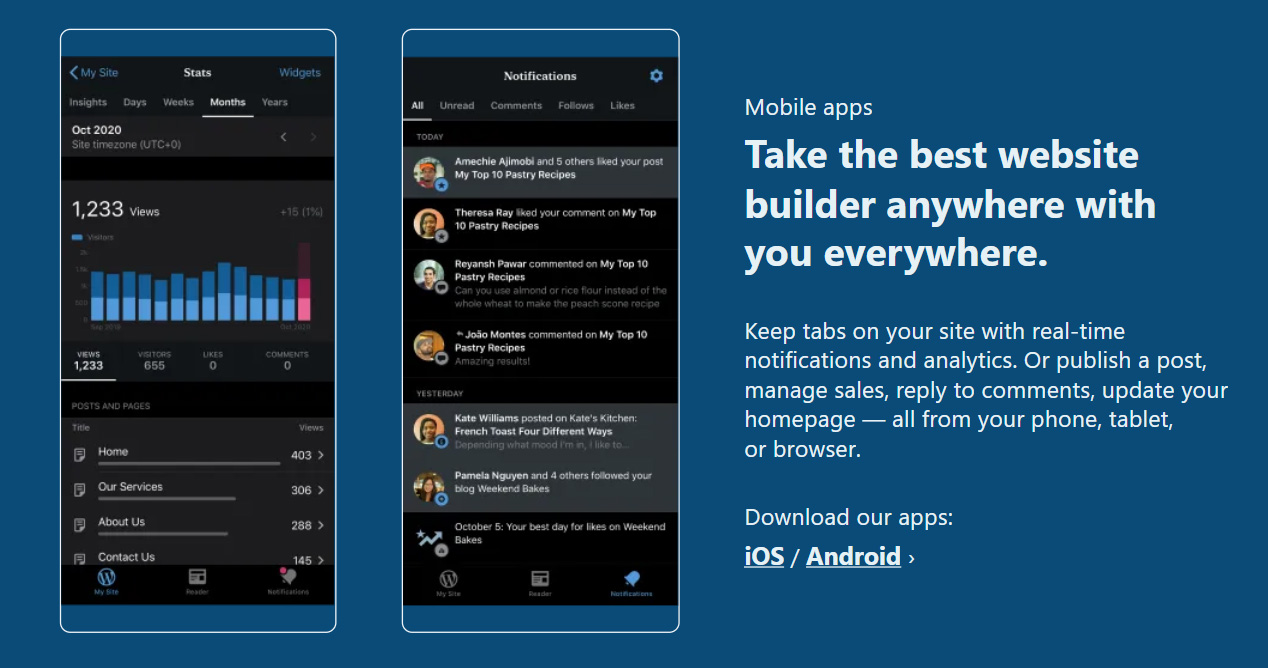
Because each plugin follows a distinct premise, each one has its own learning curve. Finding a suitable theme and plugin solution, at the end of the day, is all that takes to create an attractive and fully working website. You will, however, run into some complications if you have a large number of plugins. Incompatibility is one of them and it occurs frequently throughout time. Moreover, repairing it will necessitate the use of code.
To prevent this problem, you should read reviews of WordPress applications and plugins to make the best option. The list of "featured and popular" plugins is a fantastic place to start because it has a lot of fascinating and helpful functionality.
In this round, WordPress handily defeats Wix. Though Wix's app store is expanding, it still pales in comparison to WordPress's vast array of possibilities.
You need more than a nice appearance when creating a website that can process online orders, you also need particular functions. When it comes to creating an eCommerce website, here's how Wix and WordPress compare.
You'll need to install a store app to build an e-commerce site with Wix. The two most common solutions are Ecwid's Online Store, which is free but restricted, and Wix Stores, which requires a business membership.

A Wix business membership includes Google Analytics, online ad credits, and plenty of storage space, as well as the ability to accept online payments through your website. Businesses memberships start at $23/month, but for a small business the monthly Wix eCommerce pricing might approach $49.
If you want to build an online store with WordPress, you'll also need to customise it. Using a custom theme is the most preferred method. More than 30 appropriate shop themes are available on WordPress.com. Users of WordPress.org and WordPress.com's business and eCommerce plans may browse the theme directory for more custom themes or submit their own.
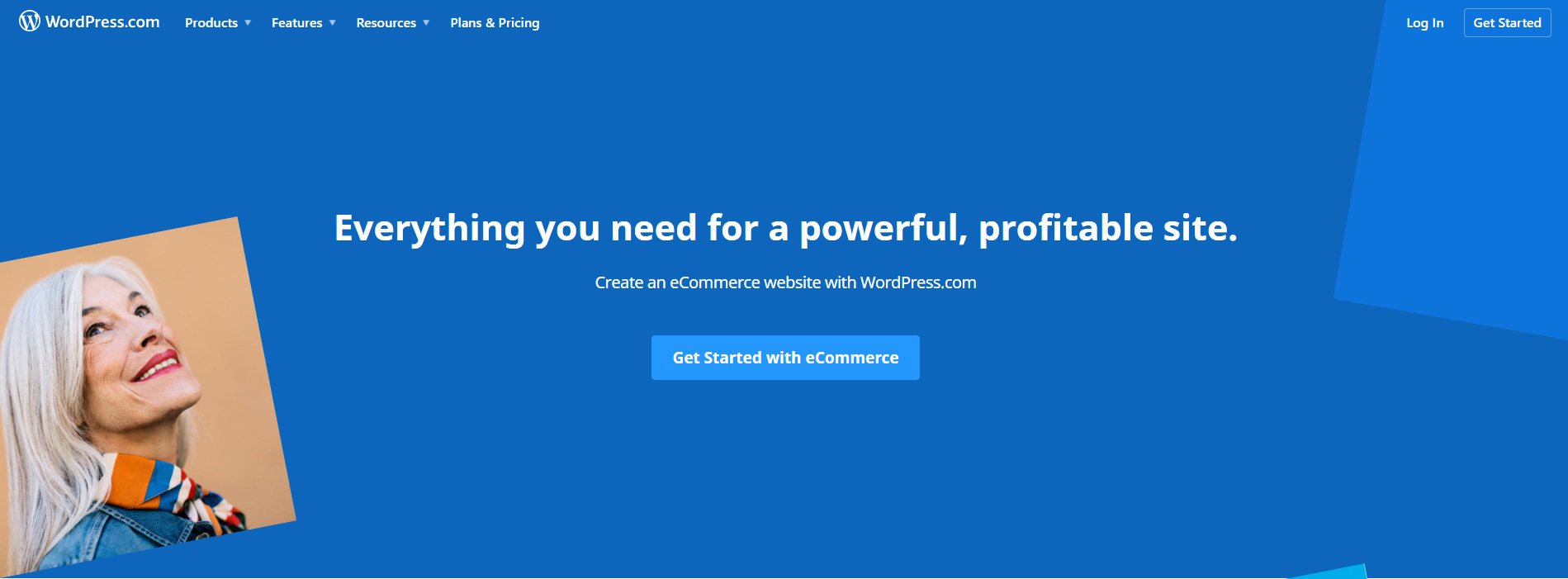
You can build your shop site without a theme by utilising a plugin, but if you're using WordPress.com, you'll need the business or eCommerce plan. On WordPress.org, ecommerce functionality is free, however hosting may be more expensive. WooCommerce, WP eCommerce, and Easy Digital Downloads are all popular eCommerce premium plugins.
Both the business and eCommerce WordPress.com subscriptions offer an automatic backup of your site, however the eCommerce membership is required to process online purchases. The monthly fee for a business subscription is $25, and the monthly fee for an eCommerce subscription is $45 per month.
Which is the best option? While a WordPress site can accomplish more, most small companies will find that creating a beautiful online store using Wix is less expensive and easier. If your company is entirely focused on eCommerce however, it's always a good idea to invest in a WordPress.org site or other ecommerce platforms like Shopify so that your website can scale with your company.
It's time to think about how your consumers will finish their purchases once you've settled on a design for your business. User flows are a good example of this. User flows may help you understand user behaviour before you construct your website, which can lead to more site visits, transactions and eventually more profits.
Wix has a lengthy history of bloating code by employing a lot of client-side Javascript. This makes crawling and indexing site links and content difficult for search engines. Many Wix site owners discovered that their webpages were physically dropping out of search engine indexes, including Google's, as late as 2015.
Wix Turbo, the drag-and-drop online creation platform, now promises speedier page loading. A Wix speed test should demonstrate faster loading of sharper-looking layouts based on additional CSS capability when compared to earlier. This is due to the network's 4x the number of international data centres as well as clever caching and fast JavaScript for faster execution.
Page load speed is usually not an issue with WordPress sites, but if it is, you may use Google's Page Speed Insights to diagnose the issue. It will reveal how quickly your web pages load and how well your site performs in general on mobile and desktop platforms. Slow load speeds are frequently caused by code bloat in the WordPress theme. You may install different WordPress plugins that perform the repairs for you in the background if you don't have any technical skills.
While Wix is working to enhance page performance for its clients, WordPress users have greater influence over the process. The process is automated with WP plugins, making it easy to enhance website load speeds. Wix does not enable access to the backend and keeps control over such functions.
Wix and WordPress both provide great blogging options. Let's look at the specifics to discover which is the better choice for bloggers.
Wix makes it easy to create a blog post since it has a user-friendly interface. You may use the blog app to add blog entries and contributor writers to your blog posts from your mobile device.
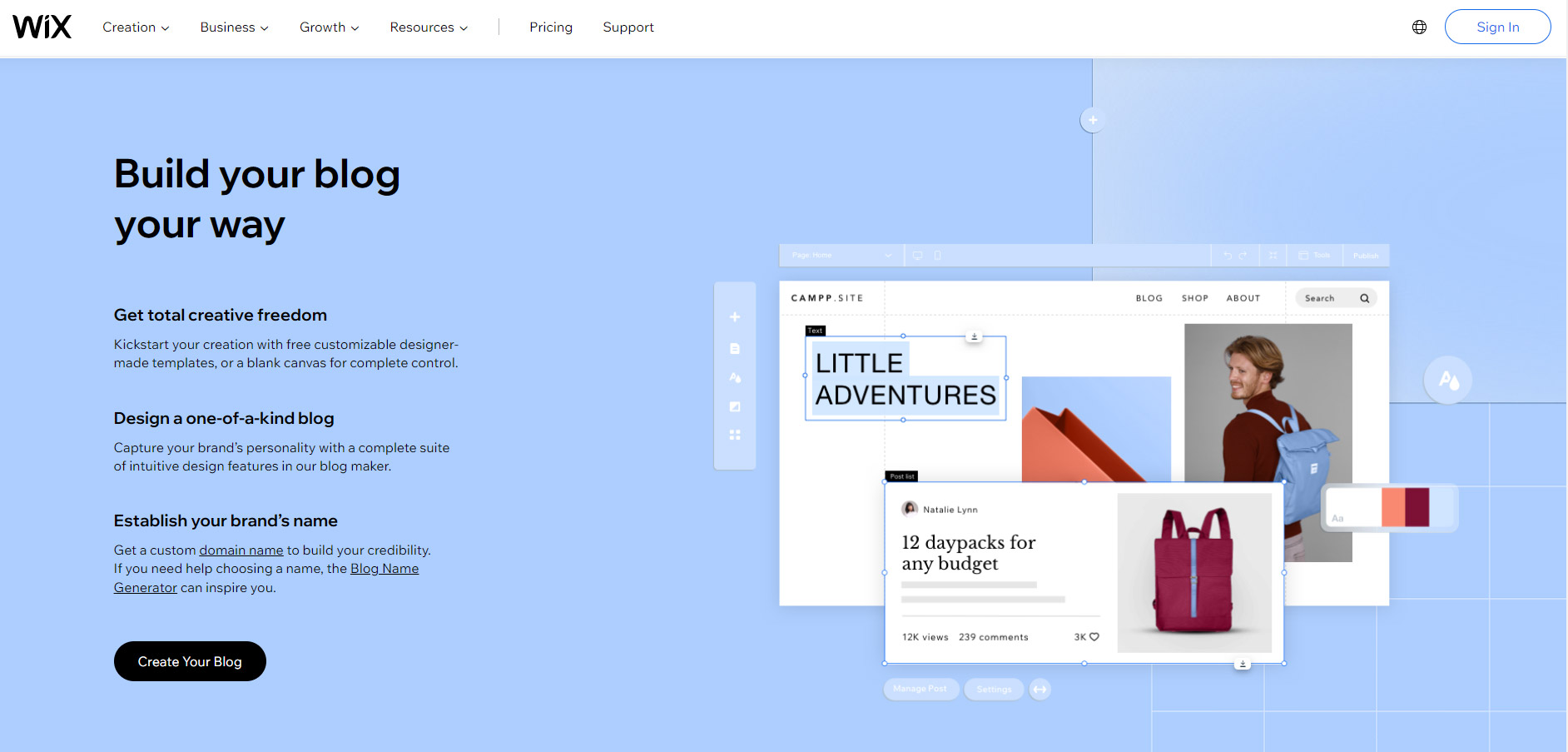
It contains built-in media that you can use to add to your Wix blog post by dragging and dropping.
Unfortunately, Wix doesn't have a lot of commenting options, so you'll probably have to rely on Facebook comments.
WordPress was created as a blogging platform, and it provides a lot more than Wix when it comes to blogging.
Even if you have no prior expertise, WordPress makes it simple to start a new blog. Images, movies, and audio files may all be simply added. Without any difficulty, you may apply featured photos, tags, and categories to your blog entries.
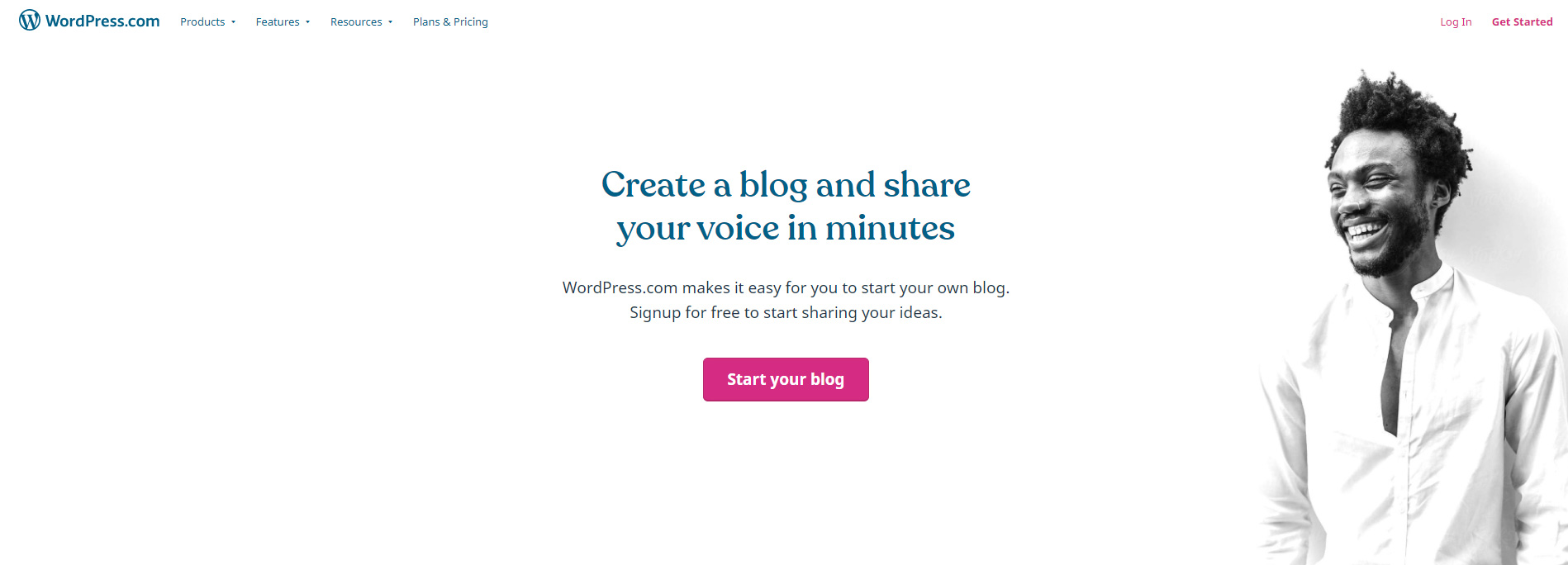
Plugins may also be used to build gorgeous blogs with additional functionality. You may add every feature you can think of to your blog post thanks to the enormous array of WordPress plugins.
Only people with WordPress accounts have access to the built-in commenting mechanism in WordPress. You can easily restrict spam with this comments system, which may not be the case with Wix.
WordPress, unlike Wix, does not have a media library that you can utilise in your blog entries. In your posts, you'll need to utilise free photographs or royalty-free stock photos.
Wix and WordPress both allow you to build fantastic blogs. However, WordPress comes out on top since it offers everything Wix has to offer, plus a lot more.
Data portability allows you to take your content with you wherever you go. Let's look at how Wix and WordPress may assist you in moving your content and reusing it.
Wix offers only a few choices for transferring your content to another platform. Your blog posts may only be exported in XML format. Your pages, photographs, videos and other information will have to be manually downloaded.
All of your content, according to Wix documentation, is hosted entirely on Wix's servers and cannot be exported.
It's a little more difficult to shift your material to another platform if you need to. A Wix site, however, may still be transferred.
WordPress is a decent content management system that makes exporting your material a breeze. It has a one-click exporter that lets you save your information in XML format.
You can also build comprehensive WordPress backups, download your media assets, and manually export your WordPress database because it is a self-hosted platform.
If you are unhappy with your current WordPress hosting company, you may easily switch your WordPress site to a different host.
When it comes to downloading and relocating your data, WordPress is far superior. Wix, on the other hand, makes removing your content fairly tough.
Let's look at the security problem in the following section of our Wix vs WordPress comparison.
When it comes to security, Wix allows store owners to secure their checkout process using HTTPS/TLS.
TLS (Transport Layer Security) is the industry standard for establishing a secure connection between a web server and a browser.
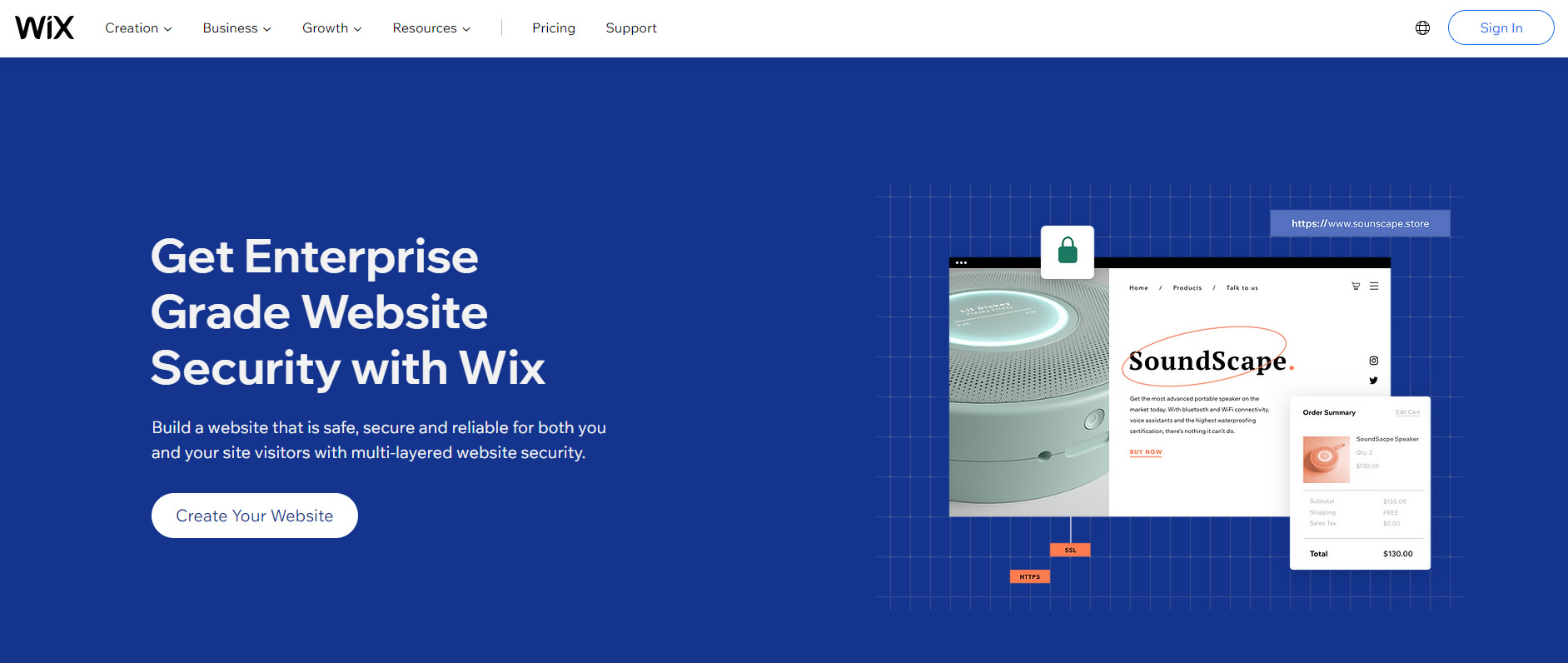
This link ensures that all information is kept private and secure. TLS is the industry standard for protecting websites from hackers, and it is used by millions of web developers.
Moreover, Wix Stores only works with payment gateways that are certified to the greatest degree of security (PCI DSS Level 1).
Because of the large number of themes and plugins available in the WordPress marketplace, there is always the possibility of your website being hacked.
There is, however, some good news. The WordPress Security team has created a suite of security plugins to assist users in ensuring that their websites are secure at all times. Store owners may now install SSL certificates to ensure the longevity of your website.
Before installing a plugin, all you have to do is obtain a licence from a third-party company. Plugins are used by almost all advanced extensions, and you must switch away from the core files to enable an SSL connection.
We strongly advise you to update your website on a regular basis and take care of it yourself. Don't worry, you won't miss the update because WordPress will display a notification in your backend to remind you. You can find a detailed guide on updating WordPress here.
Moreover, when it comes to securing your website, you should follow these guidelines:
Then, both now and in the future, your WordPress is completely safe and unhackable.
In regards of security, both Wix and WordPress do an excellent job of keeping you safe.
Wix changed the way people build attractive, user-friendly websites. But it is not as powerful when it comes to content optimization. Wix is not perfect for optimising a website that will produce huge volumes of regular information, despite the fact that the website construction platform contains tools that serve as part of a content management system (such as a business blog).
Wix is the finest at creating an immersive small company website or personal portfolio site when it comes to user experience. Owners of Wix sites have all they need to provide outstanding user experiences for their visitors. WordPress, on the other hand, allows you to fully personalise UX using both free and expensive plugins. Wix sites have pre-planned usability with minimal space for customization, however WordPress site owners may need to put in a little more effort to obtain identical outcomes. In the end, the distinction is determined by the level of control required.
WordPress is a content management system (CMS), which means that it is designed to handle content effectively. WordPress makes writing and publishing content relatively simple, allowing even users with less technical experience to construct meaningful, information-rich websites through regular content delivery. Adding plugins like Jetpack or using cache and image optimization tools to help the site run smoothly are also simple ways to improve usability.
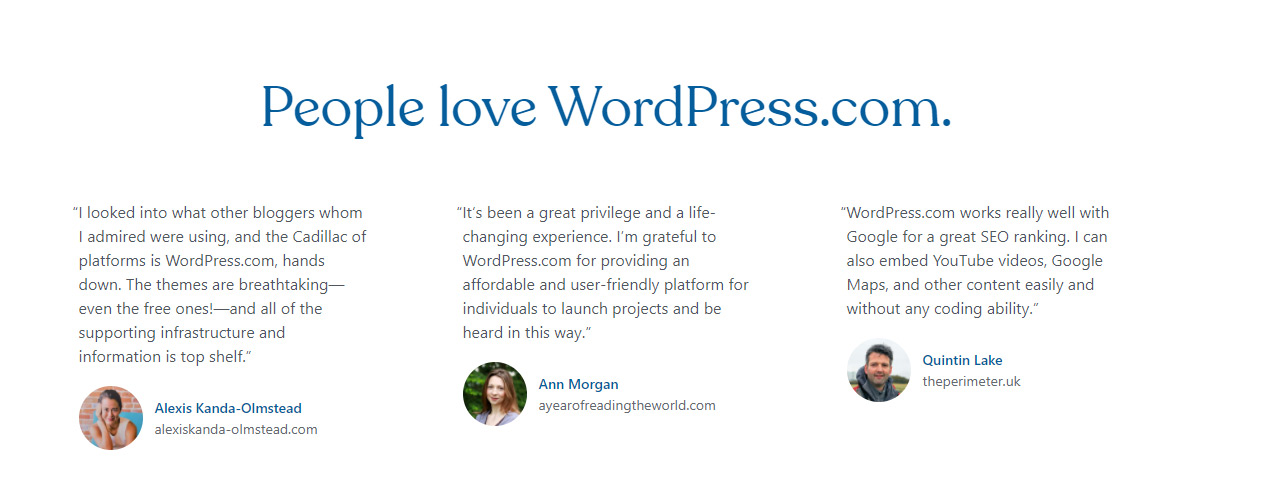
Moreover, the majority of WordPress themes are mobile-friendly. Keyword plugins like Yoast SEO can aid with article optimization. Some SEO plugins for WordPress aid with performance and speed, as well as provide additional features to engage site visitors.
In regards of user-experience, WordPress does an excellent job.
Wix provides phone, email, and community forum help. There are also a number of blogs and video courses available that are especially useful for beginners.
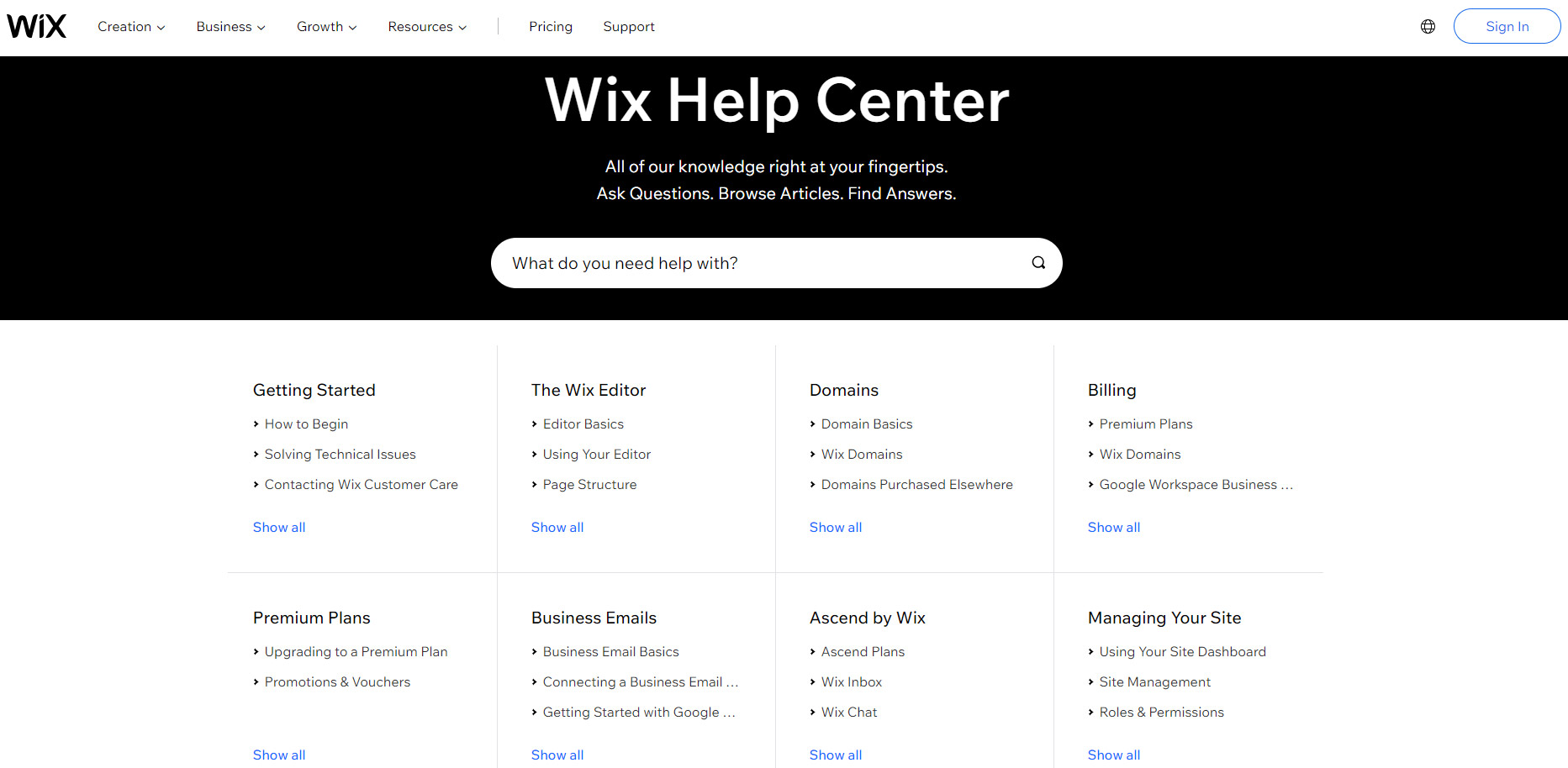
Expect some back-and-forth on the more technical issues, but they'll get to the right answer eventually.
Despite this, WordPress does not provide official support. It does, however, have a large user community and a large amount of tutorials for you to employ. You must filter the excellent from the bad due to the abundance of information.
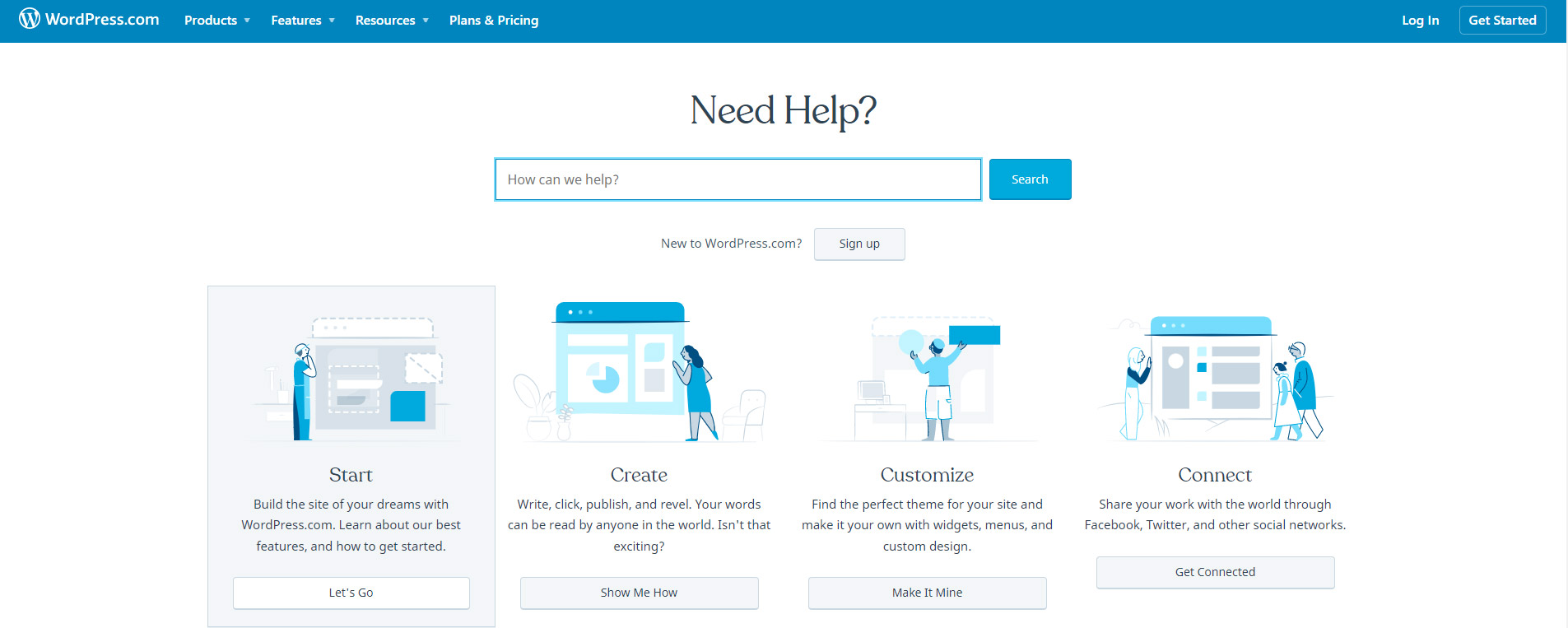
If you are good at self-education, online guides from WordPress will walk you through common issues. The whole instructions are grouped into categories ranging from "Getting Started" to "Security," making it easier to select the correct document.
It is clear that Wix offers far more help and support than WordPress. Wix's dedicated support staff will always be there to assist you in the best way possible.
When it comes to picking a site builder platform, the cost of developing a website is a significant consideration. The overall cost of establishing and maintaining your site will be determined solely by your requirements. Our objective is for you to be able to accomplish everything you want while staying within your budget.
Let's compare the prices of Wix and WordPress to see which one offers the most value for money.
Wix prices and plans vary significantly by area, however there are presently nine Wix plans available in the United States (1 free plan and 8 paid).
The following are some of them:
The free plan isn't designed for professional websites; it's good for putting something basic up for a one-time event (like a birthday party, charity event, or wedding), but you'll have to put up with limited functionality and conspicuous Wix advertising.
The free plan, does allows you to test the platform before committing to it.
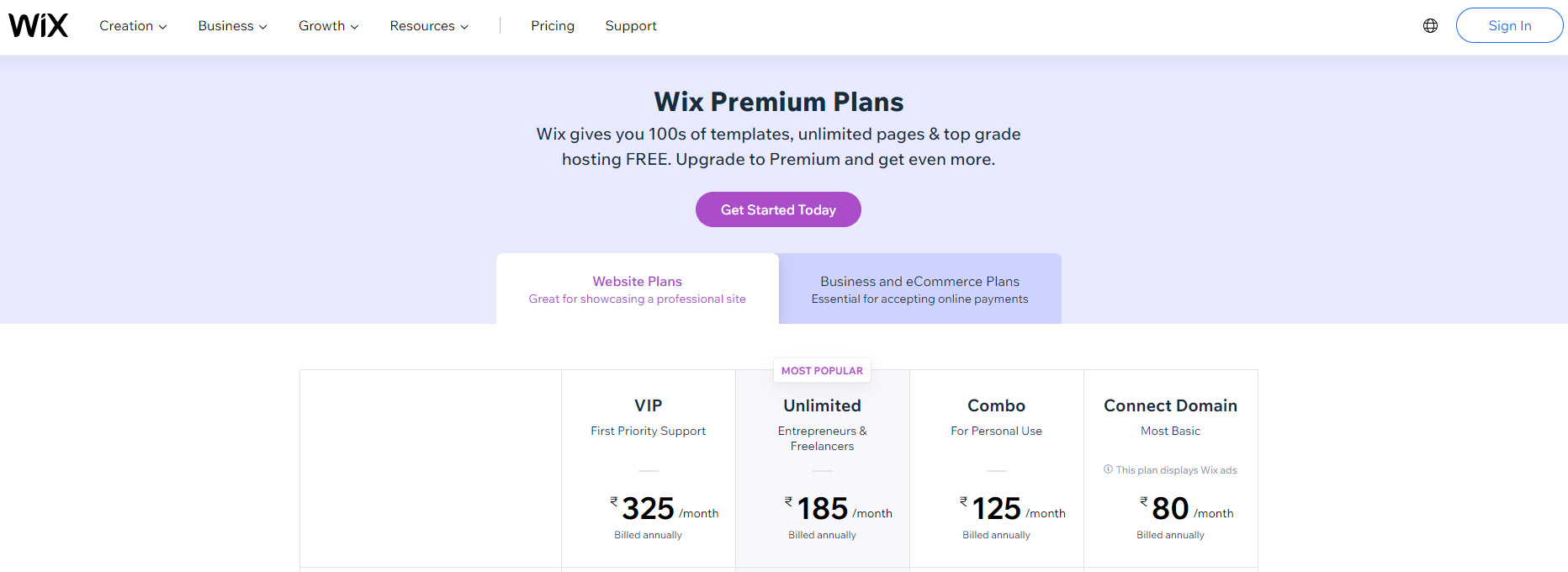
The remaining Wix plans differ mostly in terms of bandwidth and storage capacity, as well as whether or not they include ecommerce features.
The further you go up the price ladder, the more 'video minutes' you get. The video minutes feature on Wix allows you to sell or rent video material to your website's users (obviously the more minutes you have, the longer the videos you can sell).
Only the premium plans prefixed with 'Business' and the 'Enterprise' plan enable you to sell things online, therefore you'll have to pay a monthly cost of $23 to run an ecommerce site with Wix.
The 'Enterprise' option is designed for more business-oriented users. With this package, you'll get a lot more help with design, site maintenance, and security (for most users, however, this will be unnecessary).
Overall, Wix costs between $168 and $420 per year, depending on the plan you choose.
The WordPress platform is open source, which means that anybody may use it for free.
We're frequently asked why WordPress is free and what the catch is.
The primary snag is that you'll need your own domain name and web hosting to get it up.
You have a number of options when it comes to WordPress hosting.
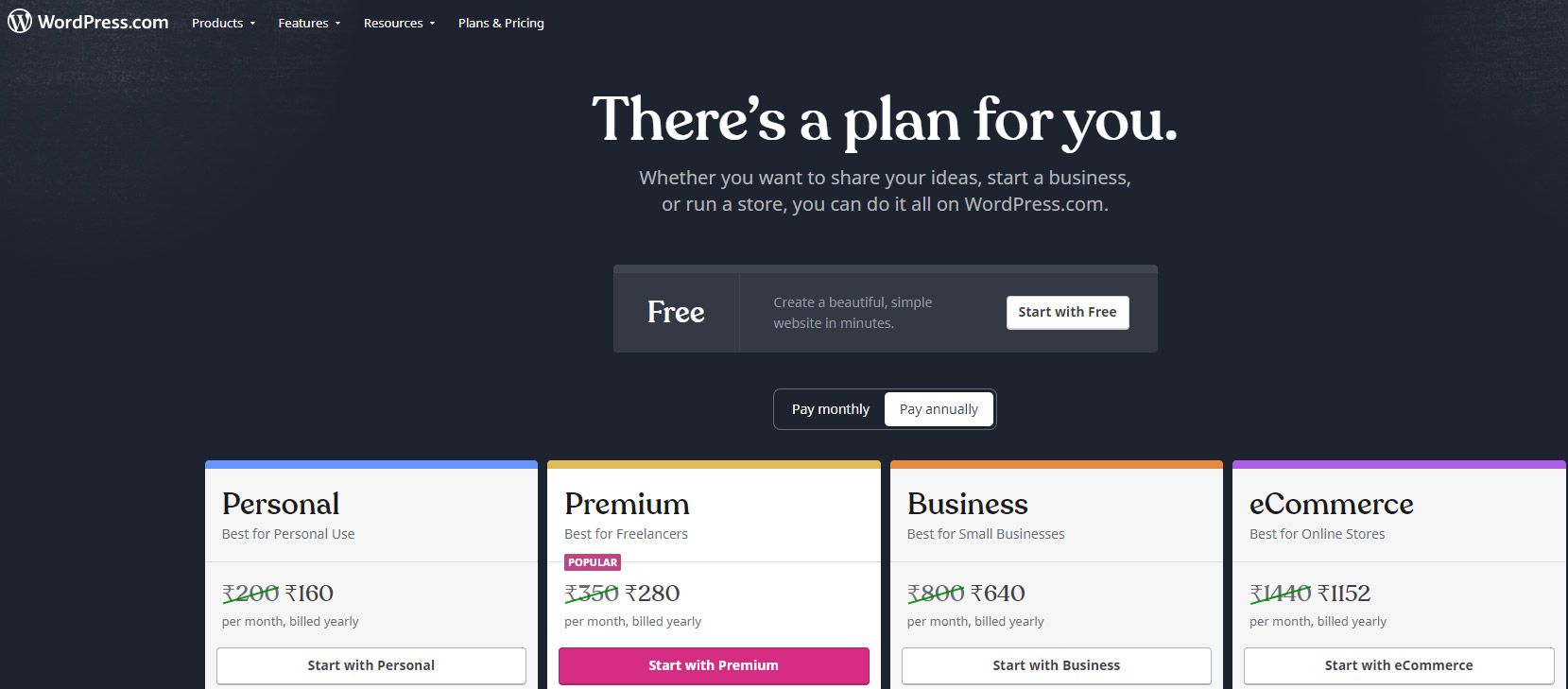
Depending on your budget, you may start with a $2.75 per month basic plan from a WordPress hosting provider like Bluehost, which provides a free custom domain name.
If your budget allows, a managed WordPress hosting service like WP Engine, which costs $29 per month, is an option.
If you opt to utilise premium WordPress themes or plugins, the cost of your WordPress site will rise (similar to apps in WordPress).
However, you may save money by using one of the many of free WordPress themes and plugins available. You may use a plugin to add any function to your WordPress site without having to upgrade your hosting package.
WordPress comes with complete eCommerce capabilities right out of the box. The WooCommerce plugin may be used to establish an online store on your website. WooCommerce is free and opensource much like WordPress.
With customizable options accessible from a range of site hosting companies, WordPress outperforms Wix. The price is determined on how many resources you use, and you are free to customise your WordPress website as you see fit.
PROS-
CONS-
PROS-
CONS
This question will be answered for you depending on your degree of competence and the criteria of the site you need to construct. Wix is a simple option for beginners, using design tools and templates to rapidly create a tiny site. WordPress is great for complex projects since it allows for more customization possibilities while also requiring more technical knowledge.
The most popular Wix and WordPress combo is for blogging. Some Wix users prefer to integrate a sub-domain and host it elsewhere to take benefit of the WordPress blog platform's full capability.
It's difficult to compare the prices of these two sites. Their approaches are vastly different. Wix is a one-stop shop that combines hosting, applications, themes, ecommerce, and customer care into a one monthly charge. Theoretically, WordPress is free. The core is free and open source, and anyone may get it. The costs of running a WordPress site come from third-party hosting and custom themes and plugins, which may be purchased as one-time payments or as monthly subscriptions.
When it comes to SEO, WordPress is typically preferable to Wix – as long as your site is properly configured. It makes it easier to develop faster-loading websites and fulfil Google's new Core Web Vitals. Furthermore, advanced SEO plugins such as Yoast for WordPress may assist you in identifying the adjustments that need to be made to your pages in order to get optimal exposure in search results.
If you're going to design a WordPress site, you'll need to have the necessary technical abilities to build and manage it in a secure manner. Other than following basic password safeguards, you don't have to worry about security with a Wix site - it's essentially Wix's duty.
Also read: Webflow vs WordPress
Finally, we hope that this article has assisted you in making a comparison between Wix and WordPress and has helped you to understand their benefits and drawbacks. These distinctions are inherent in the nature of website builders and content management systems. That is why you should think long and hard about what your website requires before making a decision. There is no such thing as a universally correct or incorrect judgement.
To summarise, both WordPress and Wix may be used to create high-quality websites.
Finally, your decision on a good website platform will be based on your personal taste and requirements.
Wix is a good option if you want to create a basic website or an online business without investing a lot of effort. However, if you want complete control over your site, WordPress is by far the best option.
You can quickly switch themes, hosting providers, and access thousands of plugins, including site builders, with WordPress. You can develop fully working online stores and take use of a number of capabilities that Wix does not provide.
As a web publishing tool for any type of website, WordPress is considerably superior to Wix. While Wix provides an easy-to-use website builder, WordPress allows you to do a lot more in the long term.
When deciding which platform to employ, SEO should also be taken into account. While both Wix and WordPress.com's premium editions offer basic search engine optimization via SEO tools, faster load speeds, and an emphasis on user experience, third-party software delivers the greatest results. There isn't a suggested SEO plugin for Wix, however there are lots of SEO plugins for WordPress to pick from. Wix is a terrific place to go if you need an entry-level website that will impress your consumers and is simple to design. Start with WordPress.com and transition to their open-source option as needed if you're ready to invest in a system that will grow with your company.
If you found this article helpful in choosing between Wix and WordPress do let us know in the comments section below. You can also reach out to us for troubleshooting any particular issue you’re facing.
Talk soon !
Here is a detailed comparison of Wordpress vs Squarespace, their services and packages and helps you to determine the finest website builder for you.
In-depth WordPress vs Webflow comparison to illustrate pros & cons of these popular tools for creating websites without any technological expertise.
Shopify vs WooCommerce? Which is the right platform for your business's shop? Let's find out in this in-depth comparison blog.
Leave A Reply